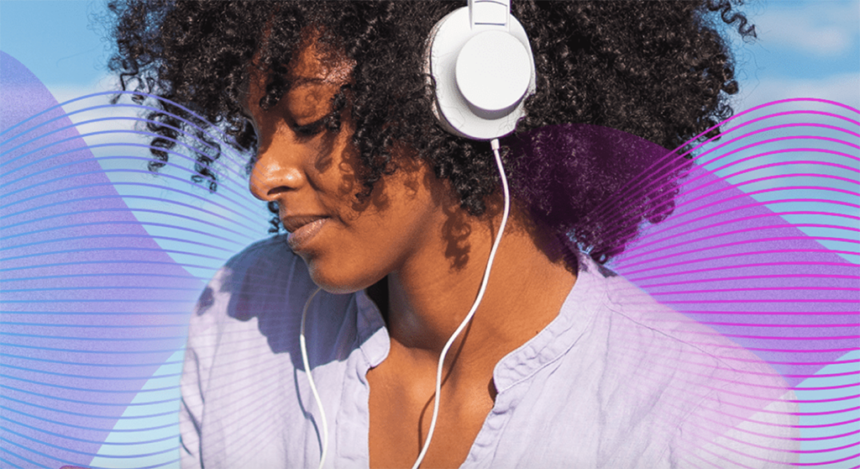Hoping to offer a new twist on smoking cessation, Nicorette has teamed up with the Berklee Music and Health Institute to create SmokeLess Break Beats.
The music therapy program was jointly developed by the two organizations. They report that it is scientifically engineered to mimic the brain response smokers get during a smoke break — but without the cigarettes, of course.
Available on Spotify, each SmokeLess Break Beats experience is anchored by original music composed by Berklee students. It’s bolstered by current songs populated via a Spotify algorithm specifically designed for the program.
Dr. Joy Allen, founding and acting director of the Berklee Music and Health Institute, explained how when cigarette smoke is inhaled, the deep breathing activates different regions of neurotransmitters in the brain. Adding nicotine to that breath activates the reward centers that trigger a dopamine response.
“It’s those parts of the brain that have to do with emotional regulation and reward,” Allen added. “Music does the exact same thing. We know from MRI studies that it lights up those same spots in the brain.”
Haleon marketing director for U.S. smokers’ health and wellness Pam Remash agreed, adding that “music has this unbelievable power that we don’t always give it enough credit for. It can drive that distraction that you might need at that moment. It drives that encouragement you need and can bring you to a different emotional state, especially when you’re trying to quit smoking.”
Dr. Allen, for her part, tied back the concept of music therapy to the way infants learn to connect. It starts, she said, with listening to their mother’s heartbeat.
Given the behavioral, emotional, and ritualistic cues that come with smoking, quitting remains an intense challenge — and that’s before one considers the myriad stresses of the pandemic years. That’s why the Berklee/Nicorette team decided to address the underpinning of smoke breaks.
The team asked, in essence, “What do you need a break from?” Instead of reaching for a cigarette, smokers might instead ask themselves if they need a boost, to slow down, to release pent-up energy or to refocus.
These four needs were studied by Berklee Music and Health Institute. They looked for musical inspiration in all its forms, including video games in which the music is designed to increase focus or intensity.
“These students were so passionate about how they can make a difference in other people’s lives through music,” Remash said. “We know that smoking is so emotional and it impacts all aspects of a person’s life. You can tell that the students understood this and that some of them had experienced it.”
SmokeLess Break Beats isn’t just for smokers, Remash stressed. Whether an individual is a smoker or not, that person can always benefit from a break.
“I encourage all of us to think about taking more breaks,” she said. “It just so happens that smokers are better at taking breaks than we are, so why don’t we use what they’re good at and let them set the example for the rest of us?”







